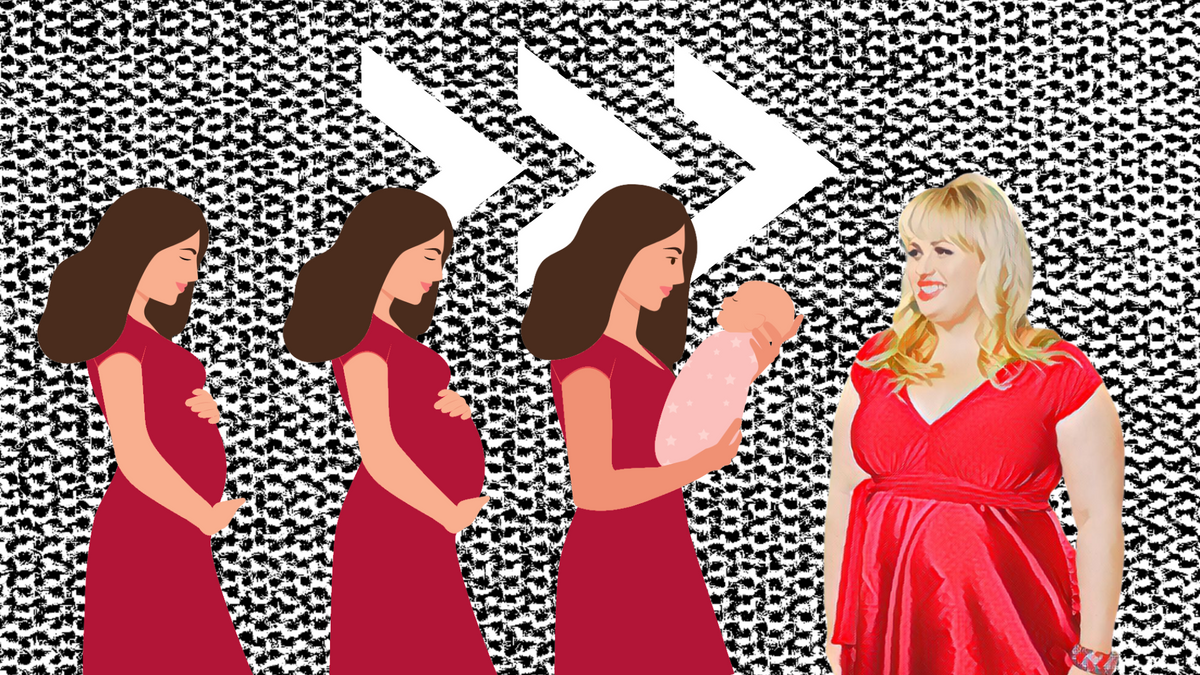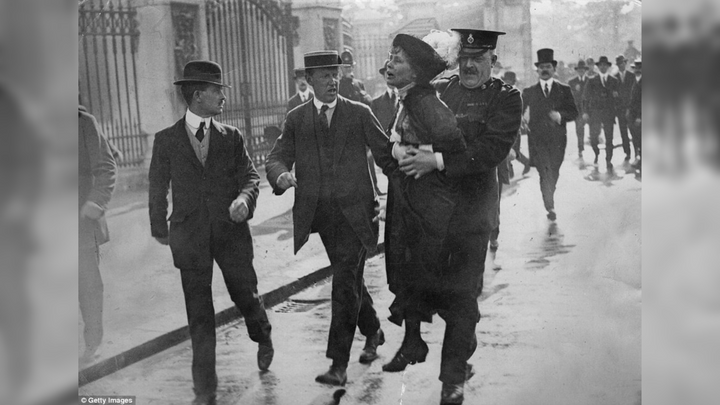Children's Rights are Being Eclipsed by Parents' Consumer Rights
Babies born to mothers treated as incubators or to women who believe they are men, will carry a trauma for the rest of their lives.

Part of my inevitable ascent into the role of “truculent old bag” is that I no longer care if detractors think I’m a pearl-clutching moralizer, and I feel not even a twinge of shame in asking “won’t someone think of the children?” Yesterday, two stories set this question ricocheting through my brain.
The first was the news that actor Rebel Wilson had paid a woman to have a baby for her, announcing on Twitter: “Beyond proud to announce the birth of my first child, Royce Lillian, born this past week via surrogate she’s a little miracle!”
The second was a poster produced by the LGBT Foundation to celebrate “Trans Parent Day.” West Yorkshire LGBTQ+ Police took time out of their busy schedule of practicing dance routines for Pride and investigating offensive tweets, to share the unsettling cartoon image of mothers with double mastectomy scars and testosterone ravaged features cradling newborns. After criticism on social media the force did a “dirty delete.”
The senders of these tweets are half a globe away from one another, yet the message that the self-gratification and identity of adults should be put ahead of the best interests of children, was written into both.
Surrogacy is risky for the women who do the grunt work of childbearing. And for those of us who are firmly pro-choice, it’s an uncomfortable truth that the maternal bond begins to form before birth. Arguably it’s no surprise that organizations, like the US based Planned Parenthood, that provide abortion services, also take a resolutely pro-surrogacy stance. To family planning providers, it’s much easier to pretend that life starts with the first breath, and that bonding happens between the newborn and whichever adult happens to be nearby. But for the baby, being taken away from the smells, rhythms and sounds of the only mother it has known will be traumatic.
Wilson, who is 42 and has polycystic ovary syndrome (PCOS), thanked the woman who gave birth to the infant adding that the baby was “the best gift.” It’s hard to not have a flicker of sympathy for the actor, used as she is to the ethical norms of Hollywood where everything has a price. Notably, she had the presence of mind to have her eggs frozen in her 30s after she found out she had PCOS. Presumably, in addition to fertility issues, the actor was aware of her short shelf life and that the body-busting business of pregnancy and birth would be tough to fit around a demanding career. This is not her fault nor of her making. Nonetheless, because of her decision to “outsource” pregnancy and birth, there will be a sore woman with leaking breasts and no child to hold, and a suffering newly born infant. And whether it’s as serious as cosmetic surgery or as frivolous as fashion, where celebrities tread, their fans follow.
Lexi Ellingsworth, co-founder of the campaign group Stop Surrogacy Now UK, warns that surrogacy is on the rise in the UK, with a four-fold increase in parental order applications over the decade.
“Celebrity culture and the unquestioning reporting in the mainstream media has led to surrogacy becoming normalised. As proposals suggest a relaxation of surrogacy laws and it becomes a more popular route to legal parenthood, we could see ‘social surrogacy’ increase too, if limits are not put in place.”
And it is known that those who are adopted can suffer from a syndrome called “genealogical bewilderment,” explained as feeling a lost connection to their biological heritage. This is unavoidable when children need to be adopted, but to deliberately subject a child to this is at best an ethically grey area.
Ellingsworth explains:
“We have decades of research on what is termed the ‘4th trimester’ along with the impact on adopted, and more recently, donor conceived children, but very little is known about the impact on surrogate-born children. How does a child feel when commissioned, purchased and removed from their mother at birth? Does this affect them beyond childhood? We cannot create a control group for study as this would be unethical and yet when money changes hands it is widely accepted and even applauded.”
What links surrogacy and “trans parent” day is the idea that the interests and identity of the consumer ought to outweigh the needs of children. We don’t yet know what physical and psychological harms will be faced by children born to mothers who’ve taken testosterone in the delusion that they are male. Yet to be fed this lie from the person with whom a child usually most closely bonds cannot be anything other than destabilizing and traumatic. Arguably, and harsh though it might sound, those without the maturity or honesty to accept their own bodies ought not to bring new ones into the world. Because giving birth does not just produce a child, it creates a mother- irrespective of whether the label is wanted.
Ultimately, the commodification of birth and bodies was inevitable, and today cosmetic surgery, transgender medicine and surrogacy have become aspirational lifestyle choices for the masses. Mining human nature and hacking our bodies are obvious next steps in a world that is powered by financial growth because as long as we exist, so will our lucrative desires and insecurities.
The marketing of bodies as services and products is celebratory, and the language used is of empowerment, choice and diversity. Yet in the drive to pursue new markets, the basic human rights of children are overshadowed by consumer rights of their parents. The trauma, confusion and dissociation that await babies born either to the deluded women who believe they are men, or the mothers who were treated as incubators, will play out for the rest of their lives. It is easy to laugh at those who fret about the next generation as backward and censorious. And it might sound unbearably corny, but please, won’t someone think of the children?
4W provides a platform for over 70 feminist writers in countries spanning the globe. This work is made possible thanks to our paid monthly subscribers. Join today to support our work!
Enter your email below to sign in or become a 4W member and join the conversation.
(Already did this? Try refreshing the page!)





Comments